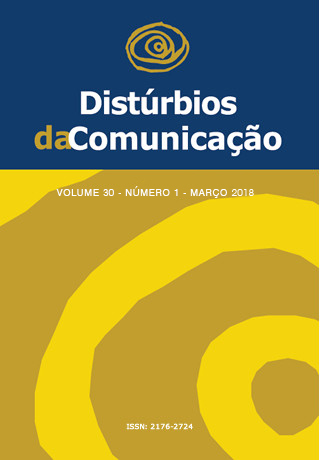Communication between deaf people who had early diagnosis and late diagnosis and their pairs
DOI:
https://doi.org/10.23925/2176-2724.2018v30i1p90-102Keywords:
Early Diagnosis, Delayed Diagnosis, Deafness, Sign LanguageAbstract
Hearing loss diagnosis must occur in the first six months in a child’s life. As soon as the child’s hearing is evaluated, in case of a hearing disability, medical and educational interventions can be initiated. Late diagnosis can promote late language development and, in many times, misunderstandings between hearing parents and the deaf child. The goal of this study was to observe two groups of deaf children and teenagers who started rehabilitation earlier and later, with regard to the use of oral and sign language and to verify how the communication with their relatives has been occurring. It is a qualitative study. The collection of data occurred through semi-structured interviews with the mothers of the deaf children and teenagers and observations of the interactions between mothers and children. We observed that some factors hinder the deafness diagnosis and the beginning of auditory rehabilitation, such as fast access to adequate resources and professional posture, because the parents have better diagnosis assimilation when the professional shelters them and uses accessible language. It was also found that children who started rehabilitation earlier demonstrated a more effective communication with their mothers, but it is difficult for mothers to acquire LIBRAS, because learning a new language requires time, practice and dedication. Multiple factors determine the language development of the deaf. We concluded that it is important to diagnose hearing loss early, as this diagnosis will guide the processes of habilitation and rehabilitation of the deaf child.Downloads
Download data is not yet available.
Downloads
Published
2018-04-01
Issue
Section
Artigos
License
Copyright (c) 2018 Natália Caroline Rovere, Maria Cecília Marconi Pinheiro Lima, Ivani Rodrigues Silva

This work is licensed under a Creative Commons Attribution 4.0 International License.









